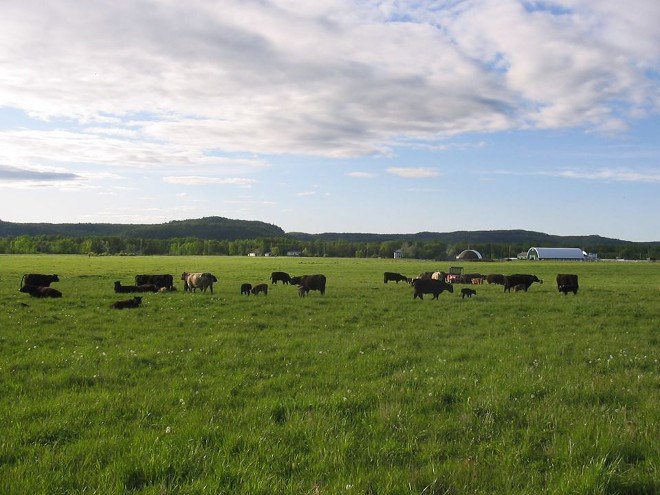In 2015, the Bruce Mines abattoir used by Algoma-area farmers was on the brink of foreclosure.
Without enough animals to keep it running sustainably, the local beef farming group, Algoma Beef Corp., worried its entire enterprise was in jeopardy. So, the farmers purchased the abattoir thinking hard work would get it back on track.
“We came to realize it wasn’t that easy,” said Mike Tulloch, one of the group’s founders, sharing the story at the recent conference hosted by the Federation of Northern Ontario Municipalities in Sudbury.
“In fact, I will say today that abattoirs are much like going to the dentist: it's a necessary evil.”
Four years later, after revamping the organization’s business plan, Tulloch proudly noted that Algoma Beef Corp. has not only turned things around, but is in the midst of expanding the abattoir to meet demand.
Targetting the Greater Toronto Area, and marketed under the Penokean Hills Farms banner, the group’s products are finding their way into high-end butcher shops and restaurants where clients are clamouring for grass-fed beef raised on pristine Northern Ontario farmland.
Key to getting to this point was establishing a six-stage value chain that ensures the quality and consistency in breed stock, encourages the involvement of local farmers, and follows through with a solid marketing plan so the product gets to the right consumers.
Tulloch said, for local meat production to have a real chance at success, abattoirs need to be recognized in the agri-food business community as an essential service.
“They're closing all over Ontario, and it really presents a hardship, not just to beef farmers, but to dairy farmers, to pork producers, lamb, rabbits,” he said. “We’re trying to develop idea that may be of benefit to other abattoirs that are prepared to go down this path.”
Part of the problem, he said, is that abattoirs face a lot of legislative red tape related to taxation, the municipal official planning process, and zoning and inspection requirements.
Many of those regulations were put in place as precautionary measures following the country’s 2003 outbreak of bovine spongiform encephalopathy (BSE), a fatal brain disease in cattle that can threaten human health if consumed.
Regulations to ensure food safety are essential, Tulloch agreed, but the Algoma Beef Corp. believes farming as an industry is unfairly targetted.
“Once an animal is slaughtered, it's just like as if it's food in a restaurant or food in a butcher shop, so why the constant glare and focus on abattoirs?” Tulloch said. “I'm all for food safety, but I suspect we're getting a lot more scrutiny than places where you only get lunch through the course of the week.”
Despite the legislative challenges, the need continues for a local slaughterhouse to process meat.
Four years ago, the Bruce Mines abattoir was processing one to two head of cattle a week. In 2018, the group processed and marketed 470 head, and it’s on target to reach 625 head this year.
If the new abattoir goes ahead as planned, Tulloch said the group could be processing up to 1,040 cattle in 2020.
They’re currently going through the licensing process with the Ontario Ministry of Agriculture, Food and Rural Affairs. If approved, construction could go ahead this summer or fall, and the goal is to be operational by March or April in 2020.
Applications are in with the Northern Ontario Heritage Fund and FedNor for capital to help fund the project, the value of which is estimated at $1.5 to $2 million.
Algoma Beef Corp. believes its operational model can successfully be replicated in communities across the North, and that it presents an opportunity to grow agriculture through the region.
“What we're proposing is repeatable, so I’m not holding back secrets,” Tulloch said.
“If you've got the initiative and the drive, and maybe an economic development corporation that would take this model and repeat it – and it takes tremendous focus to do that – I think it can be done anywhere where there's an agricultural sector to be developed.”
- Northern Ontario Business
